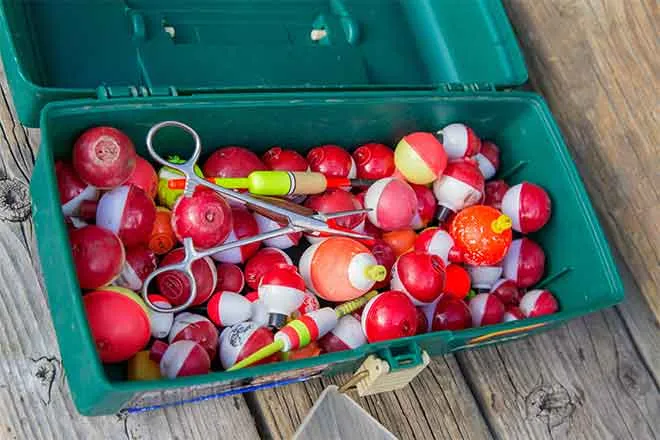
Daily Audio Newscast Afternoon Update - September 17, 2025
© INDU BACHKHETI - iStock-1336427297
News from around the nation.
Fired C.D.C. Director to testify about her clash with Kennedy; Decarbonizing Austin TX buildings could save city millions; Eastern OR residents advocate for solution to poisoned wells; Civil rights group pushes back on Trump's threat to end cashless bail.
Transcript
The Public News Service Wednesday afternoon update.
I'm Mike Clifford.
Susan Moneres, the former head of the Centers for Disease Control and Prevention, who was ousted by Health Secretary Robert F. Kennedy Jr. amid a dispute over vaccine policy, will tell her story during a Senate hearing today that promises to be a referendum on Kennedy's leadership.
That for the New York Times.
The report Wednesday's hearing will expose rocky time at the nation's public health agency, which long has been a target of Mr. Kennedy.
At a recent Senate hearing, he defended a shakeup of the agency saying, "We are the sickest country in the world.
That's why we have to fire people at CDC."
Meantime, the city of Austin could save between two and $4 million annually in energy bills by decarbonizing its municipal buildings.
That's according to a report by Texas Climate Jobs Project.
The organization Sandra Bustillo says, by making minor changes, The city can reduce carbon pollution and help fight climate change.
Installing things like solar panels or more clean energy alternatives or installing windows that are better insulated to keep the air from going out.
Adding paint that is more insulative to stop the air from coming out again too or getting rid of old pipes and replacing that with new ones.
More details from the report called Powering Public Progress, Decarbonizing Austin's Municipal buildings for a resilient future will be released in a news conference Thursday at the Austin Electrical Training Alliance.
I'm Freda Ross reporting.
And residents in Boardman, Oregon have banded together to form a new group, West Glen United, which is focused on making their community's voice heard as officials explore solutions to the region's nitrate pollution problem.
A report from January shows about 40 percent of tested wells in the area exceed safe nitrate levels from agricultural fertilizers and industrial wastewater, leaving them undrinkable.
Boardman resident Jim Klipfel helped form the new community group.
He says Morrow County has been delivering bottled water to residents and is moving ahead with plans to connect well users to city water.
We like our independence with our wells, so we're not real keen on having something shoved down our throat.
We want to be part of the discussion and be at the table to help make the ultimate decision of how this solution is going to come about.
I'm Isabel Charlay.
Next, civil rights advocates are warning that President Trump's recent executive order rolling back cashless bail reforms for certain crimes is a step backward, arguing it punishes individuals with lower incomes.
Sarah Rose with the ACLU of Pennsylvania says cash bail punishes people for being poor and was never meant to protect public safety.
Cash bail is to ensure that people show up for court proceedings, and we know there's been a lot of studies done. and there's a lot of other more effective ways to make sure that people show up for their court proceedings than to assign cash bail.
A Brennan Center report found no link between bail reform and crime.
This is Public News Service.
Louisiana community health centers are joining others across the nation in a fight for more federal funding.
Funding for many state health centers expires alongside the current federal budget at the end of the month.
This would limit access to medical care, particularly for those who already fall through the cracks of the system.
Michael Griffin with DePaul Community Health Center says while they're seeking funds to grow existing programs, they can also be used to address changes to Medicaid and the Affordable Care Act marketplace.
As people transition from some programs to others, that becomes a little of a threat because you have to work with those individuals and meet them where they are.
Griffin hopes the new funding can sustain centers workforce development programs for medical training and behavioral health services.
Data show the state's 41 federally qualified community health centers provide health care for more than 503,000 people.
I'm Edwin J. Vieira.
And September is World Alzheimer's Month and advocates are working to bring more awareness to the disease through practical tools that help encourage important conversations, especially for families.
The Alzheimer's Association reports more than 250,000 Illinois residents, age 65 and older, are living with the disease.
Lisa Paul is a medical social worker who created a new card game called the Dementia Deck to help families talk through tough topics like advanced directives, hospice, and palliative care.
Paul says it's important for families to be proactive in having these conversations, so caregivers are better equipped to honor patient wishes.
There are also questions in there that really just get to know what brings that person joy, what a good day looks like for them, because we want that to be part of the conversation as well.
The Dementia Deck is the third in the Death Deck series, which promotes end-of-life planning.
It will be released on the Death Deck website on September 21st for World Alzheimer's Day.
I'm Judith Ruiz Branch reporting.
Finally to New England, where oyster farmers on Casco Bay are leading the trend of marine electrification.
They say replacing the aquaculture industry's gas and diesel powered outboards with electric versions could help better protect the Gulf of Maine, one of the fastest warming bodies of water on the planet.
Willie Leathers with Maine Ocean Farms says it's also a great testing ground for how the technology fares in cold and salty conditions.
Reducing noise and reducing on-site emissions is a goal of not only improving the workplace, but also improving our potential impact on the environment around us.
Leather's 28-foot aluminum vessel is one of the first commercial workboats in the U.S. to run on electric outboards.
Supporters say their increased use could help revitalize coastal communities and generate excitement around Maine's iconic fishing industry.
The story is based on original reporting from Julia Tilton for The Daily Yonder.
I'm Catherine Carley.
Grants from the Island Institute, Maine Technology Institute, and federal government have helped put some of the first electric boats into operation.
This is Mike Clifford for Public News Service, member and listener supported.
Find our test indicators at publicnewsservice.org.

















